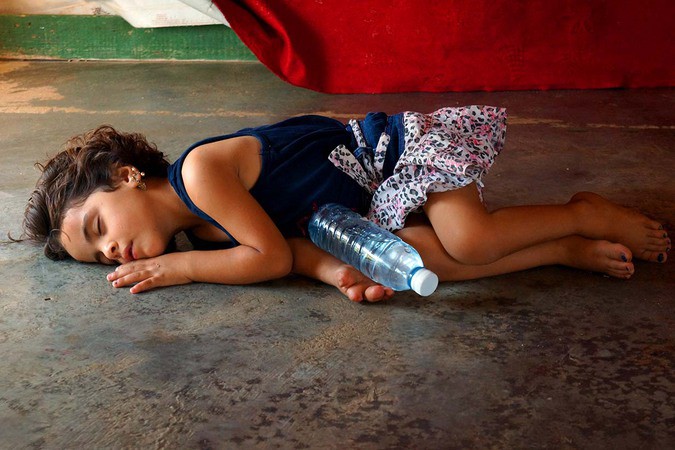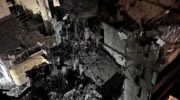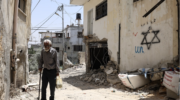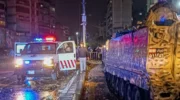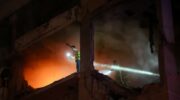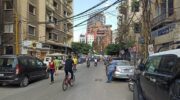Those with the first-hand knowledge of situation on the ground in the Middle East understand that the large chunk of “refugees” storming European borders, refugees they are probably not
For well over a month the sudden influx of migrants from the Middle East (Syria in the first place) to Europe has been dominating world media. For all the defiance the new arrivals show, a lot of compassionate Europeans go all out to help these poor and disadvantaged people. But they are spared the most basic words of gratitude. Instead, the “refugees” are on the offensive, demanding more - of course, all free of charge.
Traffickers cash colossal money for their services – starting from $2,000 up to $ 30,000 according to some estimates – that is for each family member, depending on the mode of transportation, hazards along the way, or lack thereof. Still, the observers note that after shelling out these exorbitant fees, “refugees” somehow manage to keep indecently expensive cell phones, their demands for quality accommodation remain pretty high regardless.
People in the know agree that those who set out for Europe had not suffered the hardest,
lost everything and was left with nothing. We can break down those storming European cities into four broad categories.
Type one is those who managed to sell their homes, businesses, cars and moved over to a safer location when the conflict was only starting to unfold. Type two are militants, kidnappers, robbers and other outlaws who had time to fill the pockets at the expense of neighbors and fellow countrymen. Back in homeland they risk prosecution by the state or the very least retribution from victims or their families (and Syria is a pretty close-knit society). Another class of new immigrants have been living abroad for years (say, in neighboring Turkey and Lebanon); they have saved just enough money to enjoy their lives anywhere, these guys have not nearly seen the war that devastated Syria. And finally, the true refugees fleeing the bloodshed, lucky to have relatives and friends abroad to pay for their journey.
But those who are still in Syria more often than not simply cannot afford this paid emigration: the average salary is below $70, a job that brings back $100 is considered very good. Most families have just a single breadwinner. To save a few thousand dollars one needs to own a stable business. With the populace getting poorer by the month this already thin layer is wearing out completely. Mind that stable earnings of non-criminal nature are only possible in non-combat areas.
To sum thing up, most of the Syria passport holders now besieging Europe are not escaping bombings or ISIS atrocities, since they are leaving safe places. Not all them are even coming from Syria. These potential Europeans enjoyed a fairly decent standard of living in the localities they left.
…Just a few kilometers from the Syrian border inside Lebanon’s Bekaa Valley sits this messy field of primitive self-assembled tents, boards nailed together and covered with oilcloth. Hastily cemented basement makes up for the floor. Toddlers are making themselves busy on cement – no toys to play with. At night, the floor is covered with mattresses; that is where the whole family will sleep side by side. There’s no heating in winter, no air-conditioning in stifling summer months. Last winter it snowed waist-deep, several children died from the cold. Dirt and mud are all around. Even these shabby lodgings came at a cost to their occupants: according to refugees, they had to pay around 600 USD to build a tent large enough to accommodate an extended family. Those without means had to settle in tiny huts, some have been living in these crammed conditions for three years now.
Contrary to what one might guess, UN agencies overseeing refugees in Lebanon provide a “generous” aid of only $13 a month per person. Not everyone is entitled even to this meager handout. With some families, only five of 15 members are allowed assistance (that will make $65 a month for all of them). Yet even a single person would struggle to survive on 65 dollars in a pretty expensive country like Lebanon. To compare – charities field staffers roundly get $2,000, i.e. 153 times more than a refugee who lost absolutely everything and ended up penniless on foreign soil.
Many complain the family is struck off the list once another child is born. None of the many children (up to ten in a single family) attend school. Medical service for refugees is non-existent; no medical staff is attached to the camp. I’ve been told of a family where a baby was born prematurely, having spent time on a life-supporting machine. The hospital staff refused to hand over the baby unless the father paid $3000 for treatment (consider $13 allowance!). What Europe are you speaking of, laughs off my questions refugees – their monthly handout will be just enough to make it to Beirut and back on a shared taxi.
What’s more, they are not allowed to work while on a UN allowance. And what job could they have taken anyway – shepherds without herds, farmers with no land plots?
Only marginally better off are those with professional training in demand in Lebanon. Most Syrians who did find jobs here are working on construction sites or in the servicing sector. Many complain about fraudulent Lebanese employers, almost everyone has a story of unpaid salaries. To raise a complaint with local authorities is useless – Syrian workers say it is always their Lebanese boss who is declared winner in any legal dispute – for he has relatives and acquaintances all over the system. Life and health insurance for those working in hazardous conditions in something unheard of. They may no longer have to live in tents, but are nevertheless cramped into makeshift housing units and have to rely on highly irregular staples for eating. Most are complaining they receive earnings barely covering daily necessities. At best what they manage to save would be send over to relatives back in Syria. Some guys do earn enough to be able to illegally travel to Germany through Turkey. But these are few and far between.
Every Syrian I’ve met in Lebanon laments the prohibitive local laws – legislation mandates that any foreigner seeking employment must provide a Lebanese fiscal guarantor. To qualify as one, a resident willing to help refugees should be a registered house owner and meet other conditions. No wonder no one wants to be hold responsible for the mass of destitute strangers. As a result, we have a million-strong army of expats with expired papers at the risk of being detained by the first enforcer they meet on the street.
No Syrian in Lebanon can explain why their own government is doing nothing to end this stalemate. None of them wants to break the law, but the de facto Lebanese policies is to allow only well-off Syrians to settle. To crown it all, it is next to impossible to legally re-enter Lebanon for Syrians who had crossed the border back (say, to settle urgent family matters) – no such constraints for militants and arms dealers who freely move across the poorly guarded border though.
Syrians do not even try to conceal their resentment – during the 2006 Lebanese-Israeli war the neighboring Syria took more than a million refugees from Lebanon, with no registration fee or guarantors required. But for the helpless Syrians stuck in Lebanon nowadays, each day is fraught with new and fresh fines. One have to pay an exorbitant levy even if he decides to return to Syria on overstaying. A death on Lebanese soil is a near-catastrophe for the relatives of the deceased – only in Tripoli (North Lebanon) the city hall has allowed to bury Syrian nationals (on average, it takes about $ 2,000). As I’ve been told, desperate relatives sometimes have to bury their loved ones in secret in the mountains, where bodies often fall prey to stray dogs.
The screaming mass of people storming Europe, which the world media for some reason calls refugees, is thus no more than an exercise in distraction. They are extorting benefits they could easily afford themselves, had not they paid for the “services” of illegal traffickers. Meanwhile Syrians in Lebanon and Syria itself are doomed to survive in dire conditions – for their suffering somehow has not been turned into a television show.
Invalid Displayed Gallery
Anhar Kochneva, Beirut
